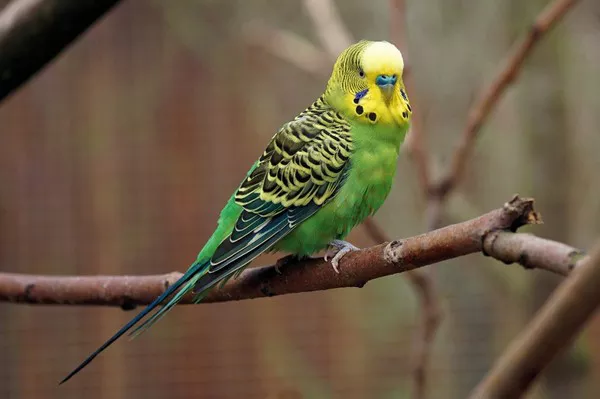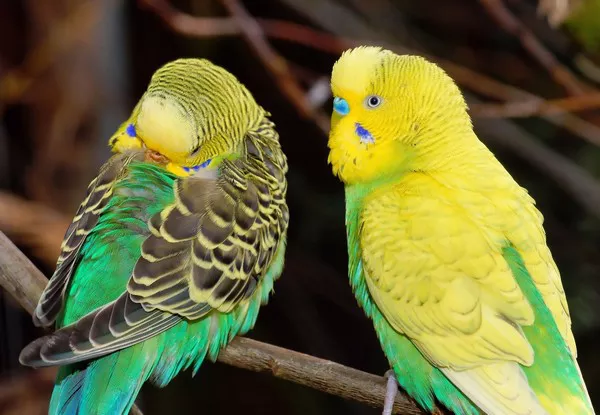Bettas, also known as Siamese fighting fish, are among the most popular freshwater aquarium fish. With their vibrant colors, flowing fins, and captivating personalities, bettas are a favorite among fish enthusiasts. As with any pet, proper care is essential for their health and longevity, and that includes providing a balanced diet.
A commonly asked question among betta owners is whether bettas can eat brine shrimp. Brine shrimp, often seen as a treat for various types of fish, can be a nutritious food source. However, not all fish respond to the same food in the same way, and there are several factors to consider before adding brine shrimp to your betta’s diet.
In this article, we will explore whether bettas can eat brine shrimp, the nutritional benefits of brine shrimp, the best ways to feed them, and other important considerations to keep your betta happy and healthy.
What Are Brine Shrimp?
Brine shrimp, also known as Artemia salina, are small crustaceans that live in salty environments, such as brine lakes or seawater. These tiny creatures are typically no more than a few millimeters long. Despite their small size, brine shrimp play an essential role in many aquatic food chains, as they serve as food for a variety of fish species.
Brine shrimp are often harvested and sold in pet stores either live, frozen, or freeze-dried. They are a popular food choice for many types of aquarium fish, including tropical species like bettas, goldfish, and saltwater fish.
The reason why brine shrimp are so favored by aquarium enthusiasts is because they are rich in proteins, fats, and essential nutrients. As a result, they are considered an excellent food source for growing or active fish.
Bettas: A Quick Overview
Before diving into the specifics of whether bettas can eat brine shrimp, it’s important to understand the feeding habits of bettas and their dietary needs.
Bettas are carnivores in their natural habitat, primarily feeding on small insects, larvae, and other tiny aquatic creatures. They are not herbivores or omnivores like some other fish species, so their digestive system is adapted to process animal-based foods. Bettas typically hunt for live food in the wild, which makes them more likely to respond to moving prey in their aquarium.
In captivity, bettas are commonly fed high-quality pellet or flake food designed for carnivorous fish. These foods are formulated to meet their dietary needs and provide essential nutrients such as protein, fat, vitamins, and minerals. However, in addition to their staple food, bettas benefit from occasional treats that mimic the live food they would encounter in the wild.
Nutritional Value of Brine Shrimp
To understand whether brine shrimp can be a suitable food source for bettas, it’s essential to examine their nutritional content. Brine shrimp are considered a high-protein, low-calorie food, making them an excellent treat for bettas.
Protein Content: Brine shrimp are packed with protein, which is vital for bettas, especially in their growing and breeding phases. Protein helps with muscle development, tissue repair, and overall growth. A betta’s natural diet in the wild would include insects and larvae, which are rich in protein, so feeding them brine shrimp helps to mimic their natural food sources.
Fats: While protein is the main nutritional element in brine shrimp, they also contain essential fats. These fats are necessary for energy production and for supporting healthy cell functions in bettas. However, too much fat can lead to obesity, so brine shrimp should be fed as a supplement rather than a primary food.
Vitamins and Minerals: Brine shrimp also provide several essential vitamins and minerals that help keep bettas healthy. These include vitamins A, D, and E, as well as minerals like calcium and magnesium. These nutrients support various bodily functions, including the immune system and bone health.
Chitin: Brine shrimp exoskeletons contain chitin, a compound that can aid digestion. While this is beneficial, it can be harder for bettas to digest if they are not fed the proper amount. This is another reason why moderation is key when feeding brine shrimp to bettas.
Can Bettas Eat Brine Shrimp?
Now that we understand what brine shrimp are and the nutrients they provide, the next question is: can bettas eat brine shrimp regularly?
The short answer is yes, bettas can eat brine shrimp, but only in moderation. Brine shrimp are an excellent source of nutrition for bettas, providing them with high-quality protein and other essential nutrients. However, they should not be the primary food source for your betta. While brine shrimp are nutritious, they do not contain all the vitamins and minerals bettas need to thrive. A balanced diet that includes high-quality betta pellets or flakes should be the foundation of your fish’s diet, with brine shrimp being offered as an occasional treat.
Benefits of Feeding Brine Shrimp to Bettas
There are several benefits to feeding brine shrimp to your betta, but it’s important to keep them as a supplement, not the main part of their diet.
High Protein Content: As carnivores, bettas require protein for their growth, energy, and general health. Brine shrimp are packed with protein, making them an excellent choice to fulfill this need.
Encourages Natural Hunting Behavior: Bettas are natural hunters, and they thrive when given food that moves in the water. Brine shrimp are small and active, encouraging your betta to chase and hunt, which can keep them mentally stimulated and physically active.
Enhances Coloration: Because brine shrimp are high in carotenoids, which are responsible for red, yellow, and orange pigments in the body, they can contribute to the vibrant coloration of your betta. If you’re looking to enhance the colors of your betta, brine shrimp may be a good addition to their diet.
Supports Breeding: Brine shrimp are often recommended for breeding bettas. The high protein content in brine shrimp helps support the nutritional needs of both male and female bettas during the breeding process. They can also help provide the right nutrition for baby bettas (fry) once they hatch.
Variety in Diet: Offering different food sources helps mimic the betta’s natural diet and ensures they receive a variety of nutrients. This diversity can help prevent diet-related deficiencies or health issues.
How to Feed Brine Shrimp to Bettas
When feeding brine shrimp to your betta, there are a few important things to consider to ensure they benefit from this treat without experiencing any negative consequences.
Choose the Right Form of Brine Shrimp: Brine shrimp are available in different forms, including live, frozen, and freeze-dried. While live brine shrimp are the best choice, as they most closely resemble the betta’s natural diet, frozen and freeze-dried versions are also suitable.
- Live Brine Shrimp: If you choose to feed live brine shrimp, ensure they are freshly harvested and free from parasites or contaminants. Live shrimp will engage your betta’s natural hunting instincts and are the most nutritionally complete.
- Frozen Brine Shrimp: Frozen brine shrimp are easy to store and prepare. Simply thaw them in a small amount of aquarium water before feeding them to your betta.
- Freeze-Dried Brine Shrimp: While freeze-dried brine shrimp are convenient, they may lose some of their nutritional content during the drying process. Additionally, they can swell up in your betta’s stomach after being eaten, which could cause digestive issues. If you feed freeze-dried shrimp, be sure to soak them in water first.
Moderation is Key: While brine shrimp are a healthy treat for bettas, they should only be offered a few times a week. Overfeeding brine shrimp can lead to an imbalanced diet and potentially cause digestive issues or obesity in your betta.
Monitor Portion Sizes: Always feed your betta only what they can consume in a few minutes. Bettas have small stomachs, and overfeeding can lead to uneaten food accumulating in the tank, which can cause water quality problems.
Clean the Tank Regularly: As with any feeding practice, it’s important to clean your betta’s tank regularly to prevent food debris from accumulating. This is especially true when feeding live or frozen brine shrimp, as leftover pieces can decay and pollute the water.
Other Food Options for Bettas
While brine shrimp can be a great treat for your betta, it’s important to provide a balanced diet that meets all of their nutritional needs. Here are some other food options to include in your betta’s diet:
Betta Pellets: High-quality betta pellets should form the core of your betta’s diet. These pellets are specially designed to meet their protein and nutritional requirements.
Live or Frozen Worms: Bloodworms and blackworms are excellent sources of protein and fat for bettas. These worms mimic the betta’s natural food sources and can be fed live, frozen, or freeze-dried.
Daphnia (Water Fleas): Daphnia is another live food that is often used as a supplement in bettas’ diets. It’s low in fat and provides roughage to help with digestion.
Insects and Larvae: Betta fish in the wild will often consume small insects or larvae. Offering crickets, mosquito larvae, or other small aquatic insects can be a great way to diversify their diet.
Veggies (Occasionally): Although bettas are carnivores, a small amount of vegetable matter can be offered occasionally. Blanched spinach or peas can help with digestion.
Potential Risks of Overfeeding Brine Shrimp
While brine shrimp are a healthy treat, overfeeding them can lead to some potential risks for your betta.
Obesity: Like other fatty foods, brine shrimp should be fed in moderation. If you feed too many, your betta may become overweight, which can lead to various health problems, including liver disease or difficulty swimming.
Digestive Problems: Brine shrimp are harder to digest than other food types, and overfeeding them can cause bloating or constipation in bettas. Always monitor your betta’s health and adjust their diet accordingly.
Water Quality Issues: Leftover brine shrimp can pollute the water if not eaten. This can lead to an increase in harmful toxins like ammonia, which can be harmful to your betta. Always remove uneaten food promptly.
Conclusion
In conclusion, bettas can indeed eat brine shrimp, and they can benefit from the high-protein and nutrient-rich nature of these crustaceans. However, it’s important to offer brine shrimp as a supplement rather than a primary food source. A well-balanced diet that includes a variety of foods such as betta pellets, frozen or live worms, and occasional vegetables will help your betta thrive.
Remember, moderation is key. Too much brine shrimp can lead to digestive issues, obesity, or water quality problems. By providing a diverse and balanced diet and paying attention to your betta’s specific needs, you can ensure that your pet stays healthy, active, and vibrant.
Related Topics:






















